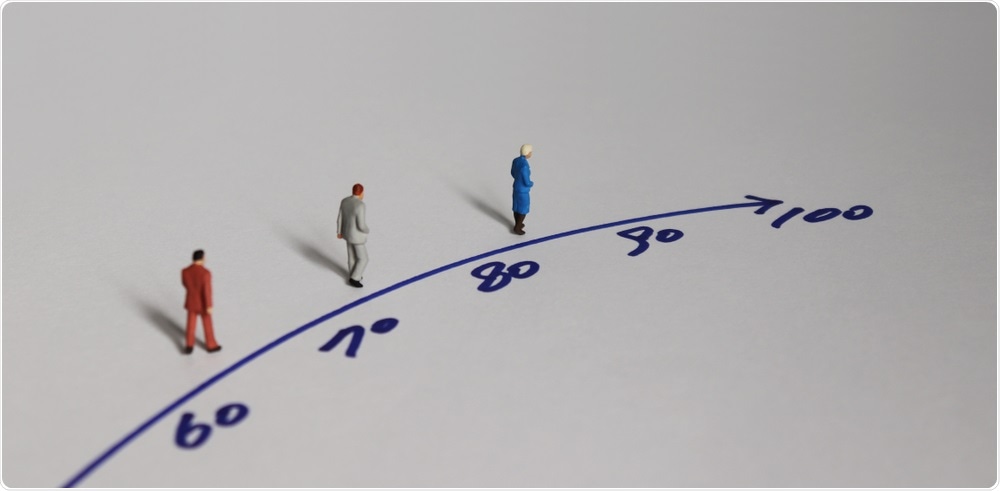Study shows the role of genes in developing diseases decreases with age, which can be used to predict the onset of conditions linked to genetic factors.

Aging Concept. Image Credit: Hyejin Kang/Shutterstock.com
An unexpected outcome for aging and disease predilection
Understanding how and why people age has been a focal point of scientific research in recent decades thanks to the rapid progress of molecular tools.
For instance, genomic technologies allow scientists to predict the disease risk of individuals according to their genome, and studies have shown that factors including age, sex, and ethnicity, can affect this predictive power. However, the patterns of variation in predictive power across these factors have received little consideration.
Understanding how biological factors affect the genetic predisposition to develop diseases is of key importance as it can inform preventative treatments and improve the livelihood of individuals, particularly with aging populations.
Now, researchers from Gil McVean of the University of Oxford and colleagues have found that the impact of a person's genes on their risk of getting sick actually decreases with age. Reporting in the journal PLOS Genetics, scientists considered how genes influence our risk of developing diseases, from cancer to heart disease to autoimmune disorders.
The study conducted by McVean's team investigated whether the risk of developing a disease posed by carrying certain genes changes as a person gets older. In other words, the researchers examined whether people are more or less likely to develop genetically linked diseases throughout their lifetime.
Likelihood of contracting genetically related diseases changes over time
The team collected genomic data from 500,000 people in the UK Biobank to determine how their genetics impact their risk of developing 24 common diseases.
Despite the fact diseases had different risk patterns, findings showed that a person's genetic risk is highest early in life and then decreases over time for many diseases. This includes conditions such as high blood pressure, skin cancer, and underactive thyroids.
This unexpected pattern provides more questions than answers, as the mechanism related to aging and disease risk levels remains unclear.
McVean's team suggests unknown processes may be at work, including interactions between a person's genes and their environment that lead to disease. Indeed, factors such as physical activity levels, dietary habits, and medical history could affect the risk of contracting diseases.
Further studies considering the mechanism underlying how risk variation changes with age may help researchers make more accurate predictions about whether an individual will ultimately become sick with that condition.
Our work shows that the way in which genetics affects your risk of getting a disease change throughout life. For many diseases, genetic factors are most important in determining whether you will get a disease early in life, while - as you age - other factors come to dominate risk.”
McVean
Journal reference:
- Jiang X, Holmes C, McVean G (2021) The impact of age on genetic risk for common diseases. PLoS Genet 17(8): e1009723. https://doi. org/10.1371/journal.pgen.1009723